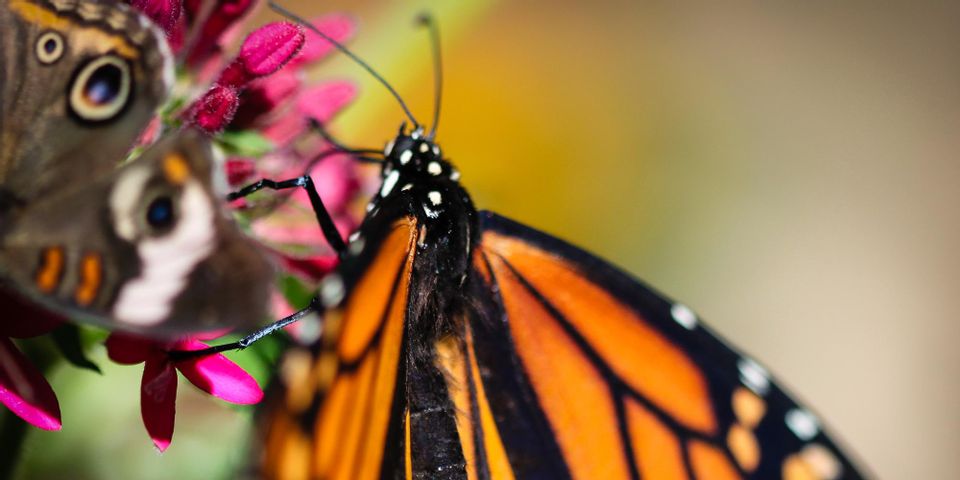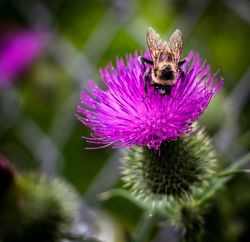
To truly thrive, the plants in your yard and garden require more than water and sunlight. They also need pollinators like bees, hummingbirds, and butterflies to visit. By taking pollen from flower to flower, these creatures help plants receive the necessary materials for producing seeds and maintaining healthy growth. The following explains how to attract these creatures to your property.
A Guide to Luring More Pollinators
1. Avoid Pesticides
While many homeowners use pesticides to protect their plants from harmful insects, these products also kill helpful ones like bees and butterflies. While, ideally, you should leave pest control to predator bugs, you can reduce the potential negative consequences of using pesticides by spraying your plants when they are not yet in bloom.
2. Mix Up the Color Scheme
 Many backyard visitors have color preferences. For example, bees gravitate towards blue, white, and purple flowers, while hummingbirds and butterflies prefer red. Therefore, incorporating various colors and shapes into your garden will increase your chances of successful pollination.
Many backyard visitors have color preferences. For example, bees gravitate towards blue, white, and purple flowers, while hummingbirds and butterflies prefer red. Therefore, incorporating various colors and shapes into your garden will increase your chances of successful pollination.
You should also consider incorporating native plants into your garden. Not only can they attract welcome guests, but they are also better suited to the local environment and will usually thrive will less maintenance.
3. Incorporate a Water Feature
In addition to nectar, pollinators need water. Installing a small water feature, such as a fountain or birdbath, can provide them with a welcome source of moisture, as well as enhance backyard curb appeal. Beyond this, the sound of running water has also been shown to reduce stress in listeners.
To make your landscaping bloom, work with Yano’s Nursery in Omaha, NE. In business since 1987, their experienced team can help with everything from plant selection and installation to design consultations. They also specialize in crafting and placing custom water features. To learn more about how their services can transform your yard, visit them online. Call (402) 895-1535 with questions about your vision.
About the Business
Have a question? Ask the experts!
Send your question

